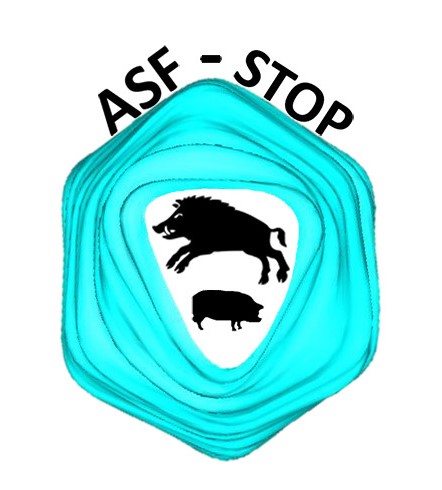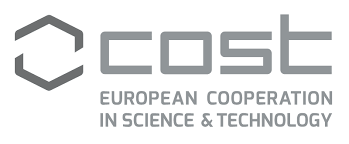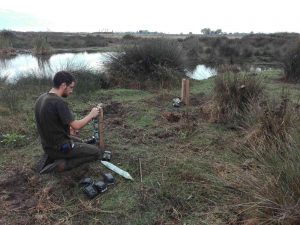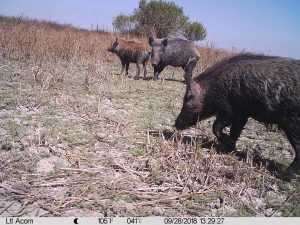IREC, Ciudad Real Spain
11-13th June 2019
ASF STOP ACTION
The ASF-STOP COST Action tackles the main challenge of stopping ASF from further spread in Europe and protecting the European pig industry. Its main objective of ASF-STOP is to improve, integrate, translate, transfer and communicate knowledge of ASF in domestic pigs and wild boar in Europe in order to develop and apply effective approaches to combat it.
This Action aims to bring together the leading European teams in these fields to improve the knowledge, diagnosis, surveillance and management of ASF. The Action by supporting the reduction of overlap and identification of knowledge gaps will facilitate a shared European vision and innovative approaches to an ASF-free domestic pig sector and wild boar population in Europe.
More details on : ASF STOP web.

What are the Training Schools?
Training Schools are organised on Action related research topics and provide dissemination opportunities for an Action’s activities. Training Schools provide intensive training in emerging research topics within the laboratories and organisations involved in the Action. Participants are mainly, but not exclusively, young researchers involved in the Action (www.cost.eu).

Training Schools on the use of camera traps in wild boar monitoring
Call is open for the upcoming Training School on the use of camera traps in wild boar monitoring. You have time till 13th May to apply. In this course you will learn the principles and uses of camera trapping and how to use the collected data for epidemiological and population monitoring studies. The school will be held at IREC, Spain, 11-13 June 2019. For the detailed program and information on how to apply please visit out Training Schools page.

Important dates:
Application deadline: 13th of May 2019
Notification of acceptance into the TS: 20th of May 2019
Final registration deadline for the TS: 3rd of June 2019

11th June (13:30-18:00). IREC (Ciudad Real)
09:00-09:45. Tour at IREC
09:45-10:00. Presentation of the training course (F. Jori)
10:00-10:45. Introduction, principles and uses of camera trapping (J. Casaer)
10:45-11:15. Coffee break
11:15-12:00. Camera trapping and epidemiological studies: description of farm resource use, determination and quantification of interactions (J Vicente, JF Ruiz, F Jori)
12:00-12.45. Camera trapping, occurrence data and spatial modelling of wild ungulates (G Smith)
12:45-13:30. Spatial behaviour of wild boar, epidemiological consequences and aspects to be considered for field study designs (T Podgorsky)
13:30-15:30h. Lunch
15:30-18:00. Camera trapping and Citizen Science
– 15:30-16:00. Introduction. ENETWILDCS (JA Blanco)
– 16:00-16:45. MammaWeb and MammalTracker (G Smith)
– 16:45-17.15. Coffee Break
– 17:15-18:00 Agoutí Patform (J. Casaer)
12th June (09:00-18:00). Quintos de Mora.
09:00-13:00. Practical set up of camera traps in the context of wildlife monitoring carried out in this State (IREC researchers)
13.00-14:30. Lunch
14:30-15:15. Review of methods to estimate abundance/density of wild boar (T Podgorsky)
15:15-16:00. Camera trap methods (REM and others) with special focus on their applicability (J. Vicente)
16:00-16:30. Coffee break
16:30-17.15. Automatic identification of species (I) (J. Casaer)
17:15-18:00. Automatic identification of species (II) (R. Soriguer)
13th June (09:00-13:00). IREC (Ciudad Real)
09:00-10:00. How manage database: visual identification of species, main problems, database structure, metadata, practical tips and shortcuts (e. g. R scripts) (P. Palencia)
10:00-11:00. Data analysis (I): Activity patterns, interactions with epidemiological relevance (P. Acevedo)
11:00-11:30. Coffee Break
11:30-13:00. Data analysis (II): Practical case: Data analysis to estimate wild boar density: REM method (P. Palencia)
Trainers:
Ferran Jori (CIRAD)
José Francisco Ruiz Fons (IREC)
Joaquin Vicente Baños (IREC-ENETWILD)
Graham Smith (APHA-ENETWILD)
Pelayo Acevedo (IREC-ENETWILD)
José Antonio Blanco (IREC- ENETWILD)
Jim Casaer (Research Institute for Nature and Forest INBO)
Tomasz Podgorsky (MRI-ENETWILD)
Pablo Palencia (IREC-ENETWILD)
Ramón Soriguer (IREC, EBD-ENETWILD)
Address of Host Institute:
IREC – Institute for Game and Wildlife Research
Ronda de Toledo, 12
13005 Ciudad Real, Spain
Contact Names:
Ferran Jori (CIRAD, ferran.jori (at) cirad.fr)
José Francisco Ruiz Fons (IREC, josefrancisco.ruiz (at) uclm.es)
Joaquin Vicente Baños (Joaquin.Vicente (at) uclm.es)
Eligibility rules:
20 participants funded from ASF-STOP
Some rules regarding registration and financial support are listed below. Please find the details in the COST Vademecum (chapter 7, page 38).
Trainees eligible for reimbursement:
1. Trainees from COST countries;
2. Trainees from approved NNC institutions;
3. Trainees from approved European RTD Organisations.
The MC of the Action decides the financial contribution for Trainees attending a Training School.
The grant approved by the MC for this training school EUR 650 maximum per trainee.
Up to EUR 300 out of the EUR 650 may be attributed for the travel expenses.
Prior to attending the Training School, the trainees must register on e-COST:
Before the respective Training School takes place, each trainee entitled to reimbursement will receive a Grant Letter, mentioning the dates and the place of the event and the fixed amount of the Grant.
After the Training School, a ‘Payment Request Form’ mentioning the dates and the place of the event, the fixed amount of the Grant, and the banking information of the trainees must be signed by the trainees, in order for the payment to be processed.
How to apply?
How to apply?
Applicants to the training school should write:
– A motivation letter, one page
– A short CV
Email these to the Training School Coordinator of ASF-STOP: Arvo.viltrop@emu.ee
The Applicant will be informed on the own candidature for grant from the Grant Holder by means of an official email via the e-COST tool. (https://e-services.cost.eu/).




